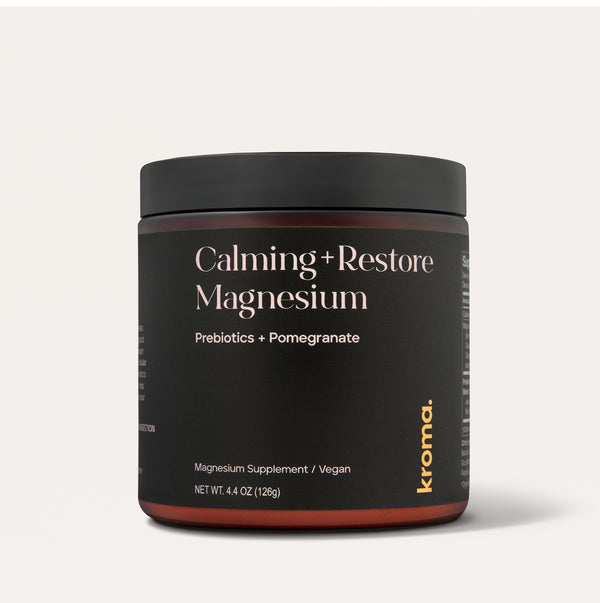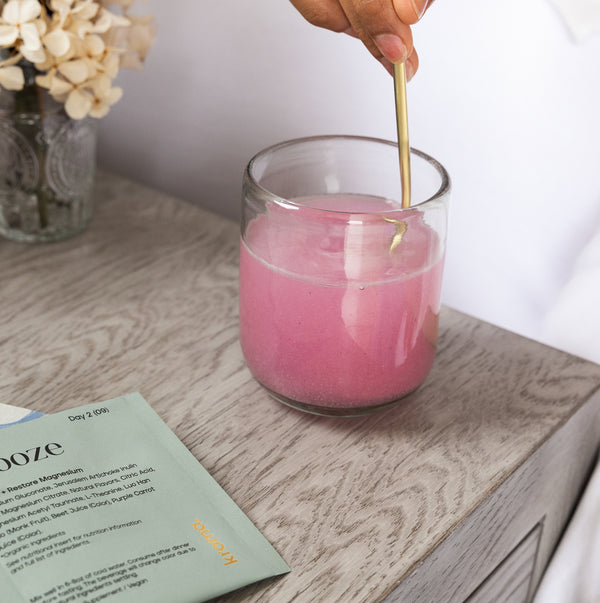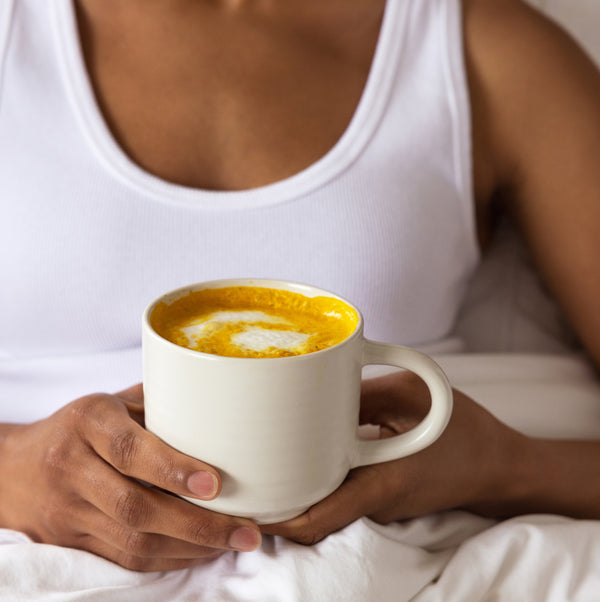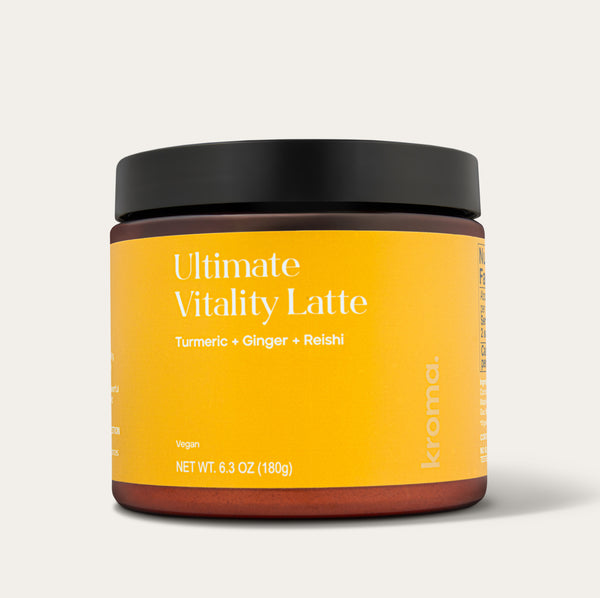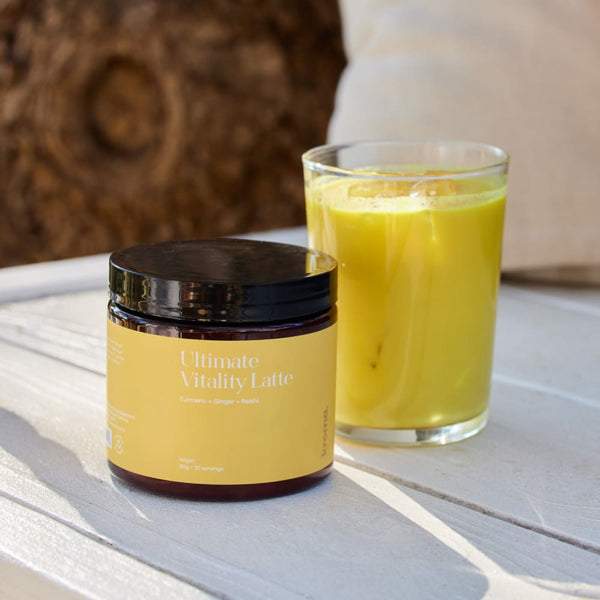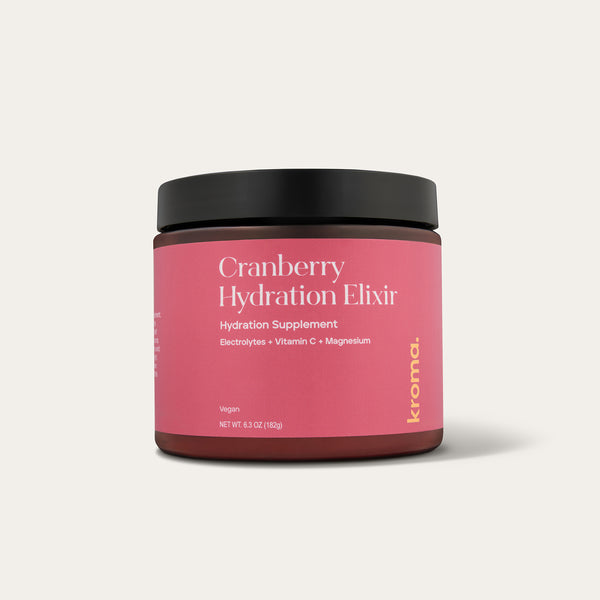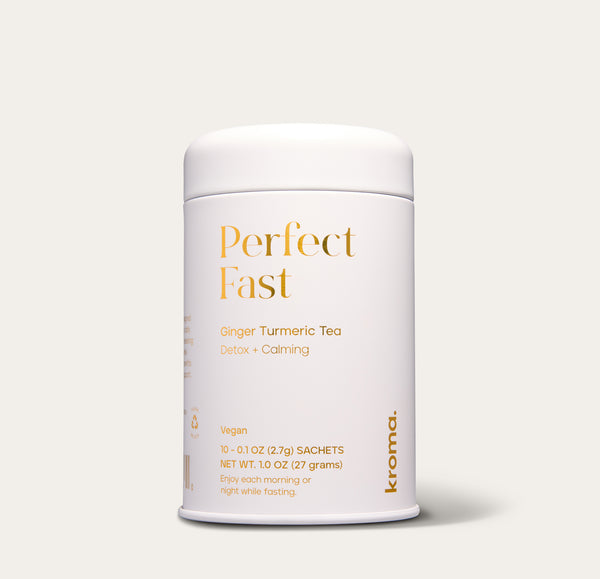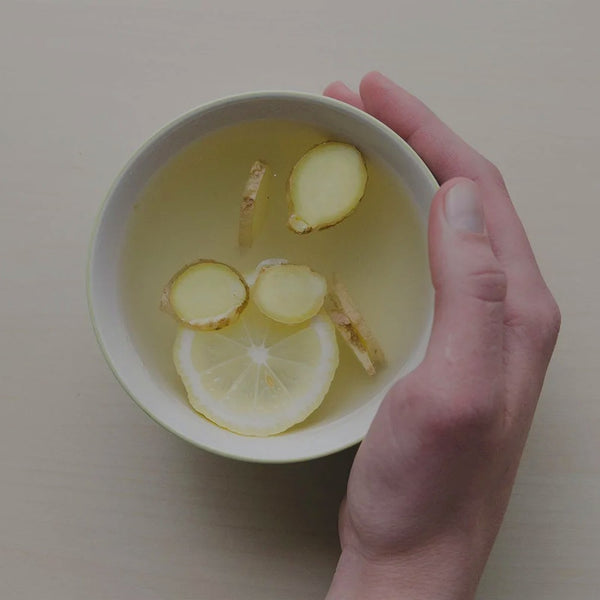There's nothing more anxiety-inducing than trying to fall asleep and not being able to. Sometimes it feels like the one thing in the world that you want, to get a good night's rest, is out of reach when you finally lay your head on the pillow.
With busy schedules, significant screen time, and a seemingly endless list of things to do, bedtime can feel more stressful than calming.
If you have trouble falling asleep or are interested in learning relaxation techniques to support falling asleep faster, then take a calming breath and keep reading.
Why Is Sleep So Important?
Sleeping is one of the basic functions of our bodies; just like our heartbeat and breath, sleeping helps our body naturally replenish and recharge itself for the coming day.
Without enough sleep, our body cannot function at its highest level. Getting the right amount of sleep means that you're taking care of your body throughout the day and preparing for bed with intention.
Immune System Health

Have you ever come down with a cold or gotten sick right in the middle of a stressful, jam-packed week at work? If you're pulling long hours and not getting enough sleep, your immune system is going to take a toll. If you don't get enough sleep, you increase your chances of getting sick.
Your immune system releases proteins that help fight off diseases and viruses as you sleep. If you are sleep-deprived, the production of these helpful proteins decreases, which increases your chance of getting sick. Sleep is one of the easiest and most beneficial ways to boost your immune system and take care of your body.
Kroma’s Immunity Duo works to promote a strong immune system with our 24K Chicken Bone Broth and Ultimate Vitality Latte. When you need an extra immune boost, Kroma can help.
Cognitive Function
Your body's internal clock needs relatively simple inputs to balance highly complex internal systems. One of the ways that your brain achieves high-level functioning is through adequate sleep.
But it's not just about getting more sleep; it's about getting enough sleep that is high quality and allows your body to go through the necessary sleep cycle. Our brain relies on sleep as a way to reset and recharge. Without sleep, our cognitive capabilities are likely to be foggy, uncoordinated and low-functioning.
Memory Consolidation
While we sleep, our brain is hard at work sorting and filing all of the information we gathered during the day. Memory consolidation is how your brain takes new information and incorporates it into long-term knowledge.
While you sleep soundly, your brain works tirelessly to move information from your “inbox” to its corresponding folder in your cognitive expanse. Without sleep, memory consolidation doesn’t happen. This not only makes it harder to recall information you once acquired, but it also makes it difficult to acquire new information.
Mood Regulation
If your sleep-wake cycle is interrupted, your mood regulation will be, too. Not only does the quality of our sleep depend on our emotional regulation, but our emotions also rely on sleep to function normally.
If interrupted, this cycle of sleep and emotions can become not only exhausting but anxiety-inducing. While many factors impact our mood, one of the most significant indicators of an emotionally well-regulated system is how much sleep you consistently log.
Energy Levels
This might seem obvious, but without sleep, your body struggles to get the kind of energy it needs to function throughout the day. Food, water, and sleep comprise some of the most significant energy sources that regulate your body. Just as you cannot live without oxygen, your body needs sleep to function consistently.
What Can I Do To Fall Asleep Faster?
If you struggle with insomnia, have significant caffeine intake, or are generally restless at bedtime, falling asleep may seem difficult.
Here are 15 helpful suggestions to create a more calming and effective bedtime routine:
1. Deep Breathing Exercises
When you slow your breath, your mind follows. One of the most difficult things about falling asleep is that your body might be exhausted, but your brain is still alert. Try laying in your bed, gently closing your eyes, and focusing on your breath.
Box breathing, or military breathing, is a helpful technique that can slow your heart rate and activate your body's natural relaxation response. Inhale for four seconds, hold for four seconds, exhale for four seconds, and hold for four seconds before inhaling again. Repeat this breathing method as many times as you wish, and continue until you feel calmer.
Focusing on your breath directs your attention away from distracting or overwhelming thoughts.
2. Meditation
Meditation is a practice that has been used for thousands of years to soothe the mind, increase awareness of sensations, and allow distractions to pass through without interruption. Regular meditation can soothe an overactive mind, whether in the morning, the evening, or both.
By practicing mindfulness throughout your day and as you prepare for bed, you signal to your brain that it is time to let go of the day and nourish yourself with sound sleep.
3. (Light) Yoga at Bedtime
Like meditation and deep breathing exercises, yoga is a practice that merges movement with breath. Too much exercise at bedtime can wake your body up and leave you feeling stimulated and energized.
However, a nightly ritual of stretching and light yoga can be an effective way to ease tension, calm nerves, and center your breath within your body before climbing into bed.
4. Avoiding Screens One Hour Before Bed
Living in a connected world means that the light of screen time can be all the time. However, electronic devices like our laptops and phones have been shown to disrupt sleep significantly, especially when used in the evening before bed.
Try making space for non-screen activities at least three hours before heading to sleep. Such activities might include reading, a slow night walk, or a warm bath.
Blue light exposure from our screen tells our bodies to slow the production of the hormone melatonin, inhibiting the signals sent to our brain that it’s time to go to sleep.
5. Progressive Muscle Relaxation
Progressive muscle relaxation (also known as deep muscle relaxation) is a physical technique you can use before bed to isolate muscle groups and move through your body to achieve relaxation. Practice this technique by slowly tensing your feet for 10 seconds and then releasing that tension for 15 seconds.
Move up through your calves, thighs, and through each muscle group until you reach your face. By the end of this body scan, you will feel all the parts of your body relax.
6. Bathe or Shower Before Bed

Taking a warm shower or bath before bed is a wonderful way to relax. There's nothing like hopping into bed feeling clean and refreshed and smelling good. Spending time in the bathroom with some lit candles or soft music is a luxurious way to honor how hard you worked that day and naturally ease yourself into a night of sleep.
Warm water and Epsom salts can relieve the muscle aches and tension you gather during the day. Taking time to care for your body is a mindful practice that allows you to transition from a fast-paced workday to the stillness of sleep.
7. Aromatherapy
Aromatherapy comes in many forms, and certain essential oils have different properties. Whether you're opting for an essential oil diffuser by the bed, including eucalyptus in the shower, or interested in a bedroom filled with candles, incorporating soft and sensual smells before bedtime can reduce anxiety and set the stage for a calm bedtime ritual.
Lavender, chamomile, bergamot, and ylang-ylang are some essential oils that can support relaxation. Using a diffuser or lightly dabbing essential oils onto your wrists is a gentle and powerful way to bring a sensual and sensory experience into your nighttime routine.
Dim the lights, bring out the essential oils, and dedicate some time before bed for yourself and your relaxation.
8. Reducing Caffeine Intake

Here’s the thing about caffeine: if you’re tired, no amount of caffeine will be able to replenish you. If you’re feeling tired or sleepy in the afternoon, reaching for a cup of coffee might seem like the right move, but hydrating your body with water, energizing with some light exercise, and heading to bed earlier can be more productive.
If you’re struggling to fall — and stay — asleep, try consuming less caffeine and energy drinks, particularly during the later parts of the day.
Swap out sugar- and caffeine-loaded drinks with something more naturally energizing, like Kroma Wellness’ Cranberry Hydration Elixir. With electrolytes and a light, delicious flavor, this elixir will lift you without having to deal with a caffeine crash later.
9. Using Blackout Curtains
While letting natural light in is an effective way to ease your morning wake-up, blackout curtains can benefit those who have trouble falling asleep because of light pollution or a busy street outside.
Blackout curtains can be helpful because they create a room space that doesn't let any bright light in. Plus, they're way more comfortable than wearing a sleep mask!
10. More Exercise During the Day

A tired body sleeps well, so incorporating daily exercise is a great way to ensure that your body will be tired when you go to bed. Making time for light exercise before bed, a post-dinner walk, or ensuring that you are getting enough movement throughout your day can ensure that your body will be craving rest come bedtime.
11. Sticking to a Bedtime Routine

Building a bedtime routine can be helpful, especially if your days are filled with work, family, and a busy social life. Sleep needs to be a priority if you’re looking to re-establish a routine grounded in wellness.
Looking for a caffeine-free beverage to incorporate into your night routine? Kroma’s Ultimate Vitality Latte contains turmeric, ginger, and reishi mushroom for relaxation and an antioxidant boost.
Perhaps you put your phone down, engage in some meditation or light exercise, and then take a bath and get in bed. A nighttime routine is most effective when it promotes relaxation and allows you to unwind.
12. Turning Down the Temperature
Tossing and turning in a hot bedroom is no fun; try to keep your room cool. Turn down the temperature, or if you live in a cooler environment, open the windows to let in some fresh, crisp air. 60 to 67 degrees Fahrenheit (15 to 19 Celsius) is ideal.
You will likely have better quality sleep at lower temperatures because your body temperature naturally lowers as you enter into your sleep cycle. A hot room might send mixed signals to your body, making it more difficult to fall asleep.
13. Opting for a Weighted Blanket
While there is no conclusive data about weighted blankets directly reducing sleep issues, they prove to be a popular and comforting accompaniment to a bedtime routine.
Like a massage or acupressure, a weighted blanket applies deep pressure stimulation. This gently distributes all-over pressure on the body. Think of a weighted blanket like a tight swaddle for a newborn: there’s something deeply comforting about being wrapped up before bedtime.
14. Avoiding Daytime Naps
One of the best ways to ensure that you're ready for bed when it's bedtime is to avoid sleeping during the day. If your body is tired from a lack of sleep the night before, try staying up throughout the day, keeping active, and staying hydrated instead of spending the day asleep.
Consistent long naps throughout the day can deeply disrupt your sleep schedule and push back your bedtime even further.
15. Trying Sleep Supplements

There are many natural ways to support your bedtime routine, and supplements are a popular option.
The Calming + Restore Magnesium supplement by Kroma Wellness is a brain health-boosting elixir that not only contains prebiotics but three kinds of magnesium to help you achieve deeper states of relaxation.
Are Sleep Disorders Common?
Sleep disorders are relatively common, with around 70 million people in the United States experiencing some form of sleep disorder. If you’re having trouble falling and staying asleep, you are not alone. With so many people experiencing restlessness at bedtime, ample resources are available to help you achieve a full night’s sleep.
What Are the Effects of Sleep Deprivation?
The impact of sleep deprivation can range from mild to severe. You may have experienced it after not getting enough sleep the night before. You might be cranky, agitated, and irritable throughout the day. Consistently being deprived of sleep can have much more significant consequences.
Mood Swings
With sleep being so crucial for your cognitive function, it's no surprise that your moods can be all over the place when you don't get enough sleep. It's natural to be cranky when you're tired.
Yet, significant mood swings throughout the day put the body and nervous system through stressful changes. These can make it harder for you to stay focused and on track throughout your day.
Low Energy
Sleep energizes us, and without it, we can wind up feeling drained. It's important to remember that not only do food, water, and oxygen fuel our bodies, but sleep allows us to rest while our minds and bodies recharge for the following day.
There’s only so much caffeine you can consume if you’re tired, so be sure to prioritize getting enough sleep before trying to stay energized through caffeinated beverages.
Decreased Attentiveness
Without an effective bedtime ritual, you may not be getting enough sleep to wake up feeling refreshed and energized. And without energy, your body can’t function.
Decreased attentiveness is a sneaky side effect of sleep deprivation since it can range from mild to severe. Mild signs include having a hard time focusing and staying alert throughout the day. More severe signs include difficulty performing complex tasks and impaired judgment.
Poor Memory
Adequate sleep supports our memory in several ways, including the consolidation of memories.
While we sleep, our mind is hard at work sorting, processing, and consolidating the memories that we acquired throughout the day.
With insufficient sleep, our ability to focus is impaired. Subsequently, the acquisition and consolidation stages of memory-making are disrupted.
The Bottom Line
Sleep is one of the most important parts of our day, even if we're not conscious of it! Without sufficient sleep per night, our bodies, brains, and immune systems cannot function at their highest ability.
A lack of sleep can have mild to significant side effects, including becoming more susceptible to disease, inability to focus throughout the day, and a general loss of energy and motivation.
Combine lack of sleep with dehydration, a busy work schedule, and family life, and you'll be left running on empty. Prioritizing sleep and a nighttime routine is one of the best ways for you to ensure that you’ll be getting high-quality, bountiful sleep for a better tomorrow. When you need an extra boost to support your body and mind, Kroma’s Perfect Fast Tea can help. With ginger for digestion and relaxation, turmeric for adaptogenic properties, and cinnamon and bergamot for the ultimate calm, this tea has everything you need to soothe your soul.






